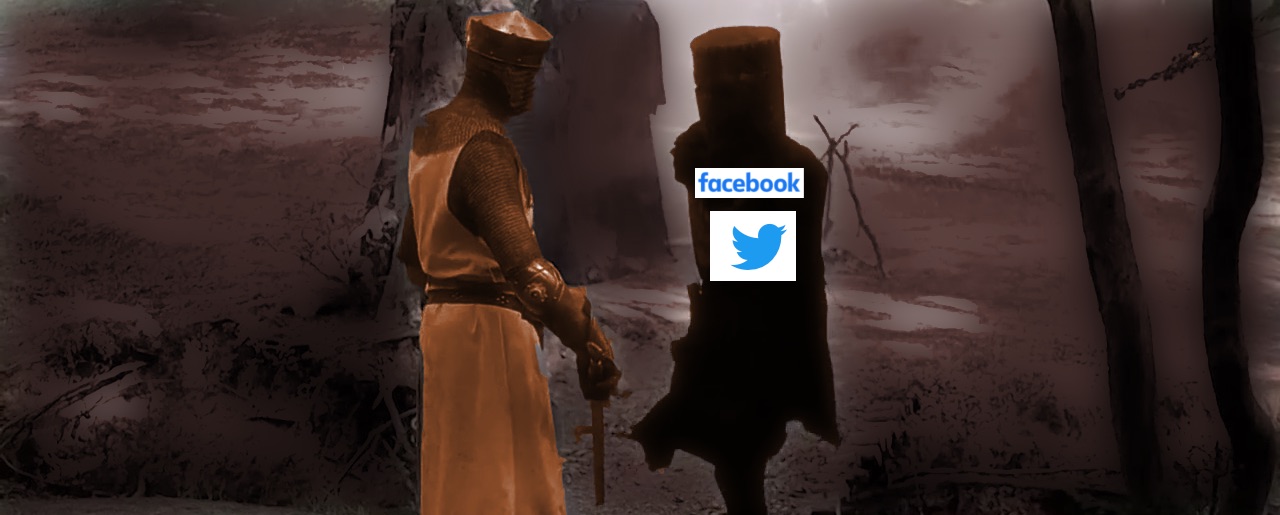Social Media is still very much alive. But it has reached its peak and the future does not look rosy. No one thing has dealt a fatal blow but circumstances conspire against social media's continued place in popular culture. The familiar social media giants rose from the ashes of now-abandoned sites but my guess is that we will never see another Facebook or Twitteror Instagram, etc rise up to replace today's incumbents.

Part of the problem is demographical: Facebook and Twitter have been around for a long time, the population is aging and the young people who would replace them do not want to post on the same sites as their parents. Who wants to organize a massive keg party on the same site that still holds that oh-so-funny picture of you aged 8?
But a bigger problem is that the political landscape has changed. As Facebook and Twitter became ubiquitous they also became more visible. Posts now regularly get people fired or worse. The first thing reporters do is search for social media posts, and digging into people's history is somewhat of a national pasttime.
Anyone under the age of 30 has grown up in an environment where it is obvious that posts can prevent you getting a job, get you disciplined at school, repulse that someone you were crushing on, and generally mess up you life. That little hit of dopamine you get from posting something mildly provocative doesn't seem quite worth it.
This is, on balance, probably for the best - people should be accountable for their posts. But it does provide a good reason not to engage with the big social media sites. The very thing that made Facebook and Twitter attractive 15 years ago - airing a slice of your life to the world - is now what makes them dangerous. And the sites can not change that without fundamentally changing the way they drive repeat visits and ad sales.
In their never-ending quest for "engagement", social media sites have evolved to air the most controversial opinions. They reward individuals who provoke the biggest response, it is baked into their carefully designed UI with "likes" and "retweets" and whatnot. Now that this is a liability, Facebook and Twitter are stuck in a evolutionary dead-end. To become more attractive for users by providing control and privacy is to destroy "engagement" - a dilemma which I have no confidence that they can solveI have worked for too many large companies to think that they can innovate successfully.
What will replace social media? The same things that are nibbling away it now - things like Discord and the like, that provide ways to form private(ish), self-moderated groups. I am sure all sorts of horrific stuff is posted on DiscordHere I am using Discord as an example, there are other services servers but, with no way to search history across servers, people feel more at ease.
With Meta flailing around with other enterprises and Elon Musk buying Twitter, the grip of Facebook and Twitter is gradually loosening. The userbase is slowly dyingincreasingly literally and fragmenting as time passes.
I don't know what the Internet will look like in 10 years time, but I bet it will be more fragmented and not quite so public.
Afterword
That got a little negative. My experiences with Social Media have been almost entirely positive and I will be sad to see it go when/if it does. I have recently joined Mastodon, which tries to address some of the things I have written here by giving more control to the user and de-emphasizing engagement. In many ways, Mastodon anticipatedIt has been around for a long time by this point the trend for reduced centralization and greater control.
We'll see how that turns out.